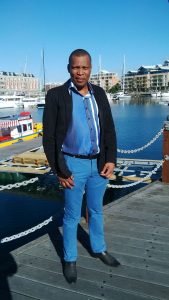Law via the Internet 2017: Friends, Namesakes, and Global Impact
Like Kleenex, Xerox, or Velcro, “Legal Information Institute” is a generic term for organizations that offer free and open access to primary legal materials, worldwide. More than 20 years ago, a group in Canada asked us if they might use “LII” in their name — they became “CanLII”, quickly followed by “AustLII” and a raft of others. There are now at least 20 LII namesakes worldwide. Along with other like-minded organizations, they have created a mostly-informal, globe-spanning alliance that calls itself the “Free Access to Law Movement’. Over the years, we have provided advice and support to many of its members, creating global goodwill and impact from the contributions of our supporters.
Each year, the organization holds a conference called “Law Via the Internet” (LVI). LVI2017 was held last week at the Rutgers-Newark School of Law. It was, to say the least, an eclectic event. There were presentations on everything from a standard system of identifiers for courts worldwide to bias in search-engine algorithms to information services for the Kenyan judicial system. Keynote speakers were longtime LII friend Ed Walters, CEO of FastCase, and Corynne McSherry, the legal director of the Electronic Frontier Foundation.
The LII was a strong presence. Sara Frug, the LII’s Associate Director for Technology, Sylvia Kwakye, and Nic Ceynowa described their work on Docket Wrench. Docket Wrench, originally developed by the Sunlight Foundation, is a regulatory monitoring system that we are extending and improving with the help of students from Cornell’s Masters of Engineering in Computer Science Program. Craig Newton, the LII’s Associate Director for Content, talked about what we’ve learned from the strong surge in usage of our site by people checking up on statements made by government officials. And Peter Martin, the LII’s co-founder and co-director emeritus, presented work on the realities of availability of Federal caselaw.
The real value of conferences is in informal discussions, and there were many. We get at least as much help as we give. For example, anyone who has ever had to build a legal information system from scratch by scanning moldy legal documents has a lot to teach us. And our audience has a great deal to gain from alliances between the LII and other partners who create large caselaw collections. All in all, it was a worthwhile and gratifying experience for us. The work being done here and elsewhere is having profound effects throughout the world, and it is nice to be reminded of that. It all started here, and it continues because of the generosity of people like you and the ingenuity and forward-thinking of many like us around the world.
PS: We were delighted to see a number of you at our cybersecurity panel event in New York just before LVI. We’re doing another in Washington, DC on the 9th of November, and would be delighted if you could join us (don’t be scared if it looks like it’s an event for Cornell alumni — we told them they could come if they agreed to behave themselves).



 At LII we think a lot about the relationship between the law and the general public. This year at the Law Via the Internet Conference, LII staff gave presentations that each, in their own way, were about how members of the public interact with the law.
At LII we think a lot about the relationship between the law and the general public. This year at the Law Via the Internet Conference, LII staff gave presentations that each, in their own way, were about how members of the public interact with the law.  In March of 2015 Alfred Mahlangu, of
In March of 2015 Alfred Mahlangu, of